Are Hamsters Nocturnal?
Although they have a lovely and cuddly look, hamsters can be equally captivating species regarding their sleep behaviour. If you`re considering bringing a hamster into your home, it is essential to recognize their everyday sleep habits. Therefore, the question is: are hamsters nocturnal?
Yes, hamsters are primarily nocturnal — they sleep during the day and become most active at night or around dusk and dawn.
Key Facts
- Most hamster species are nocturnal or crepuscular (active at dawn/dusk).
- This pattern helps them avoid predators and stay cool in hot desert climates.
- Domestic hamsters retain this wild survival instinct.
- They sleep 12–14 hours daily, mostly in short naps.
- Cage placement, lighting, and noise levels directly affect their sleep quality.
- Waking them during the day may cause stress or irritability.
Hamsters are nocturnal animals, meaning they generally sleep during the day and are energetic at night. In the wild, their ancient relatives learned to avoid the hot sun during the day and hide from animals that could see well. Pet hamsters also exhibit this habit, as they are typically the most active in the evenings and at night.
This article will cover hamster sleeping habits, including preferred sleeping schedules and diurnal and nocturnal behaviours. I will also provide care guidelines to owners, which help them regulate their hamster’s sleep patterns and overall health.
Understanding Hamster Sleep Behavior
Hamsters are nocturnal by instinct, a behavior inherited from their wild ancestors that avoided predators and the daytime heat. Hamsters are crepuscular, so they are active at dawn and dusk. However, they have a nocturnal propensity, which means they are more active at night.
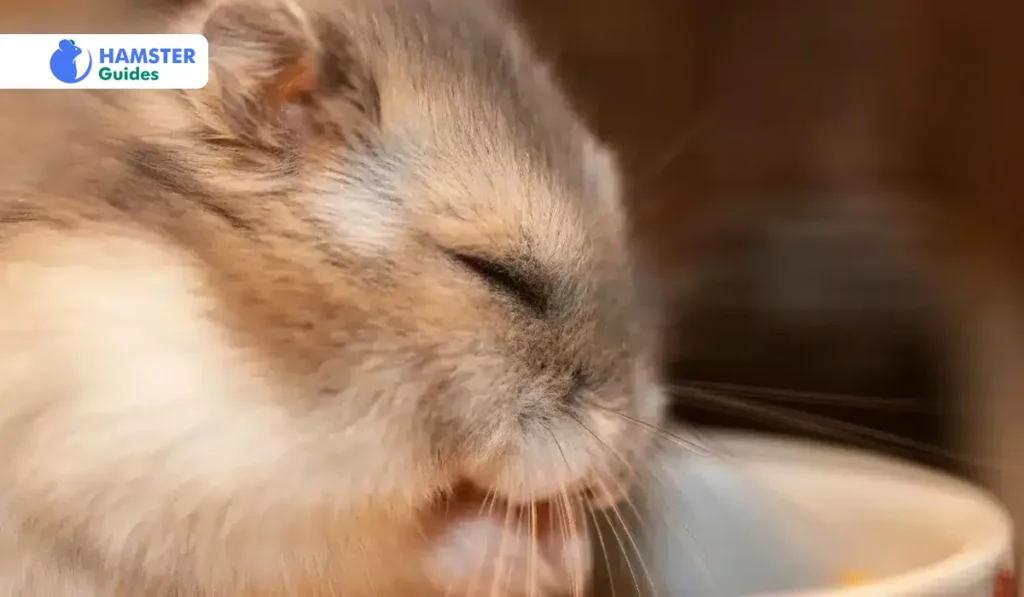
So, even though they might be up and about during the day, they tend to stay awake more at night. Furthermore, like most animals, their circadian rhythm influences their sleeping habits. Owners should observe their hamsters’ behaviour to determine their sleep cycles.
According to PetMD’s Hamster Behavior Guide, this sleep pattern is a natural survival trait seen across multiple hamster species.
Hamster Sleep Behavior Overview
| Sleep Behavior | Description |
| Nocturnal | primarily active at night, sleeping during the day to protect itself from predators and save energy. |
| Crepuscular | Energetic during dawn and dusk, They are used to low-light situations in the wild for foraging and protection. |
| Diurnal | Although rare, some may be active during the day if they feel safe and comfortable. |
| Sleep Patterns | It varied in hamsters based on genetics, human interaction, and the environment. |
Hamsters are primarily active at night and can be classified as nocturnal animals. Unfortunately, the truth is more complicated. Although many pet hamsters are nocturnal creatures, others could have crepuscular preferences.
So, they are primarily active in the dusk and dawn. This variation in sleep habits is due to their natural adaptation to avoid predators and survive better in their environment.
Related Resource: Can Hamsters Eat Peppers?
Extra information: Schedule playing in the evenings when your hamster is most active.
Nocturnal or Crepuscular: Deciphering Hamster Sleep Patterns:
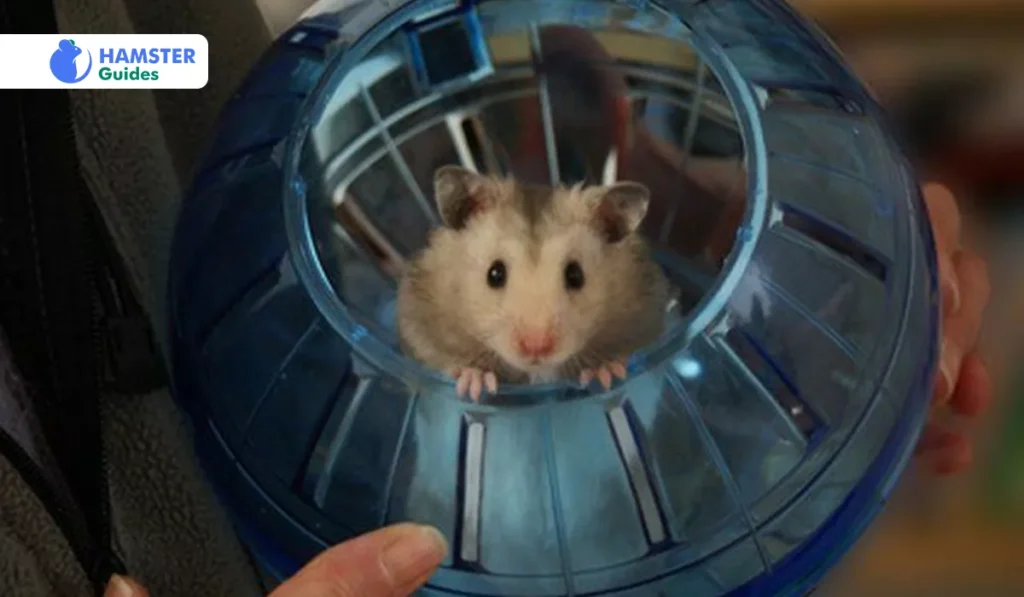
However, there is a more nuanced term that better explains a hamster’s sleep cycle:
Crepuscular. Crepuscular animals are most energetic during the twilight hours. which occur just before sunrise (dawn) and shortly after sunset (dusk). In contrast to what you’d assume from a strictly nocturnal creature, your hamster might wake up later or earlier.
Common Hamster Sleep Patterns
| Type of Hamster | Sleep Pattern | Description |
| Syrian Hamster | Nocturnal | Active at the night, sleep during the day to keep away from predators and preserve energy. |
| Dwarf Hamster | Crepuscular | energetic between dawn and dusk; used to dim light in the wild to find food and stay safe |
| Roborovski Hamster | Nocturnal/Crepuscular | They might show a mix of nocturnal and crepuscular behavior, being active at different times of day and night. |
| Chinese Hamster | Nocturnal/Crepuscolour | Just like Roborovski hamsters, they show both nocturnal and crepuscular characteristics. |
| Campbell’s Hamster | Nocturnal | Primarily active at night, showing usual nocturnal behaviours |
Why Are Hamsters Nocturnal?
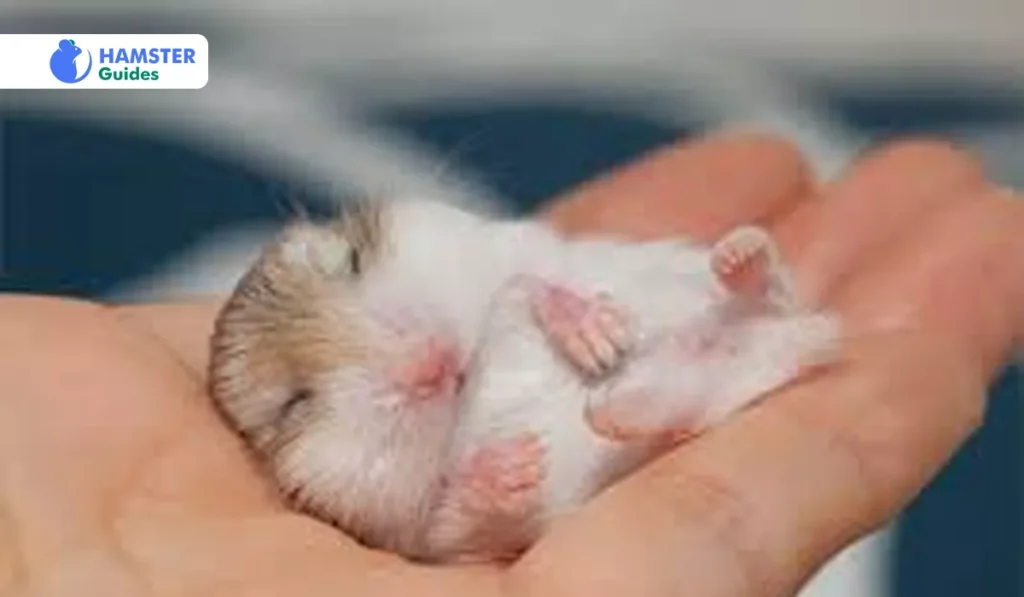
There are two main reasons why hamsters are nocturnal:
Here’s a breakdown of a typical hamster’s sleep cycle:
Extra information: Take gentle care of your hamsters and try not to wake them up during the day.
Sleep Routine
Many hamsters sleep around 14 hours each day. While they sleep, their sleeping cycles can be brief and may last only five to ten minutes.
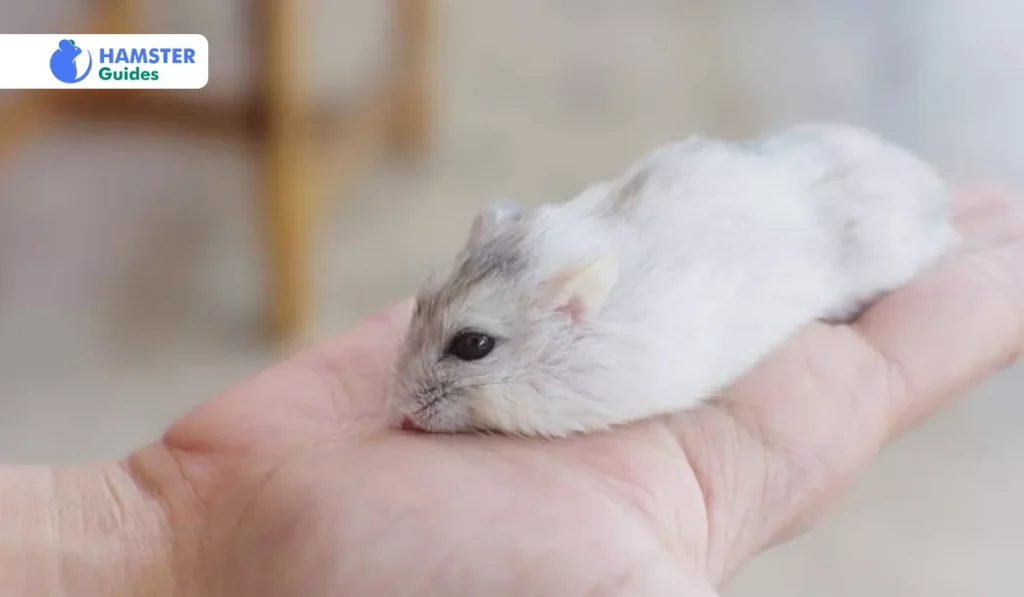
Some pet owners have seen their hamsters sleep with open eyes, which is normal. These are some instances where hamsters can protect themselves from potential danger while in REM-like sleep conditions. That’s why making sure that their sleep environment is safe.
Related Resource: Can Hamsters Eat Broccoli?
Hamster Sleep Environment And Care
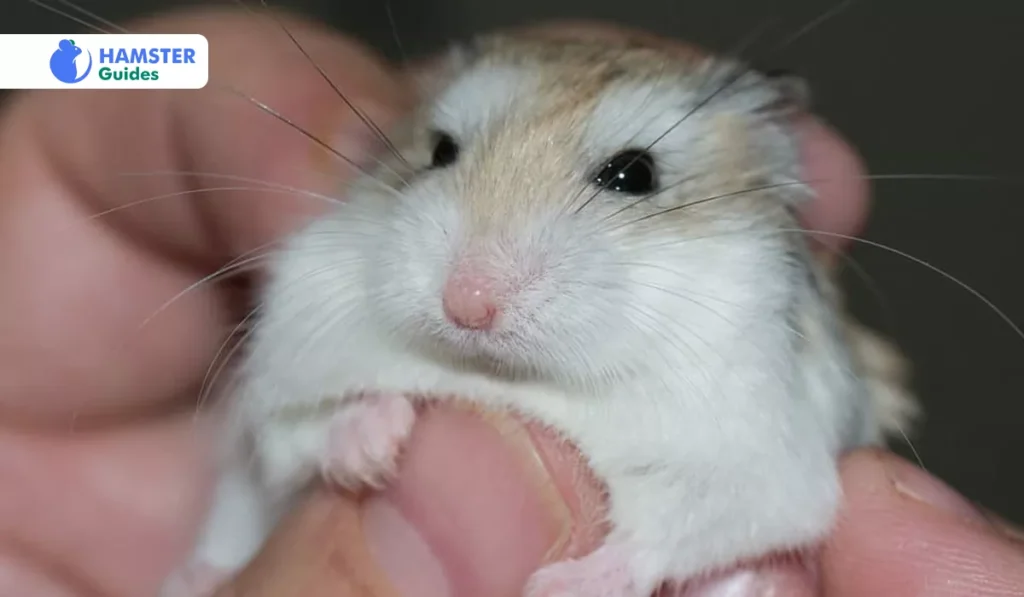
It’s essential for a hamster to have a good place to sleep because it will affect its overall health. In this case, one has to keep the cage somewhere quiet so as not to disturb them during the day.
They require bedding such as paper or aspen shavings so that they can feel cosy enough and can encourage digging activity and nest building in them. i.e. they need to be happy and get ample rest.
Related Resource: Can Hamsters Eat Grasshoppers?
Accommodating Hamster Sleep Needs:
Just watching over these animals does not guarantee them enough rest. You must take steps towards encouraging their sleep patterns.
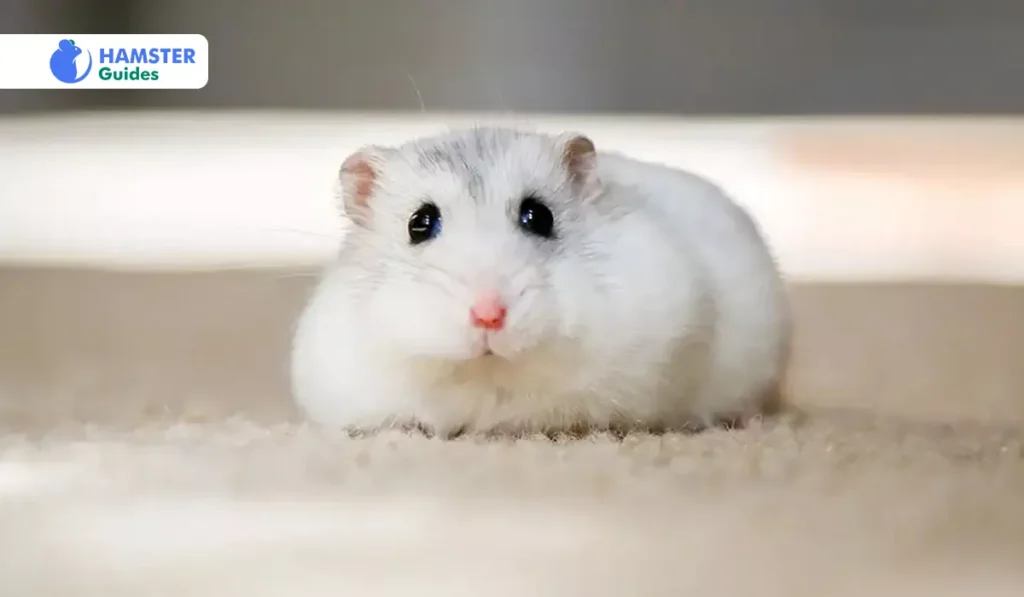
Ensure you give them a balanced diet, keep them doing things all day round, and stick to daily routines. Giving them a hamster wheel will enable them to fall asleep better and keep themselves busy.
To take care of your hamster correctly, you must know its sleep patterns. Here are some things to consider:
Factors Influencing Hamster Sleep Behavior
| Factor | Influence on Sleep Behavior |
| Environmental | Temperature, humidity, noise level, cage design, and habitat size. |
| Social Interaction | Handling frequency, human interaction and presence of other hamsters. |
| Health Status | Anxiety, disease, discomfort, and pain |
| Age | Age has a direct effect on sleep patterns. Older hamsters typically remain asleep longer. |
| Genetics | Predisposition and genetic traits may affect how they sleep. |
Extra information: Keep the lights in the hamster’s cage on a regular basis. It helps you maintain their normal sleep routine.
Behavior cues and Distress signals
Despite the nocturnal nature of hamsters, excessive activity during the day or excessive drowsiness may be signs of underlying health problems.
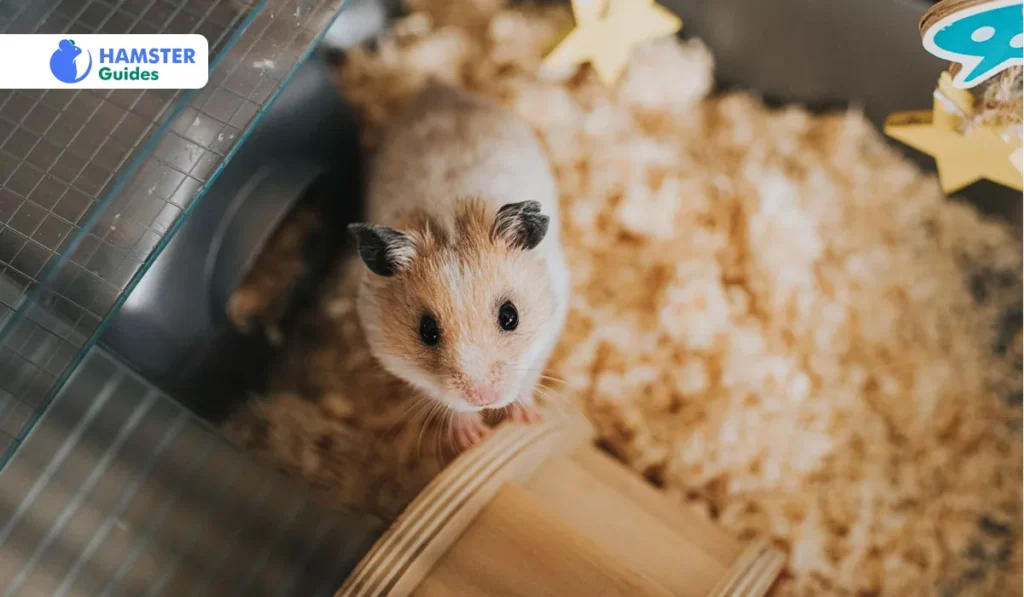
Owners should observe their hamster’s acts and discomfort signs. For example, If they seem overly upset or restless, it might mean they’re sick. If this happens, it’s a good idea to ask a vet for help. Their sleep habits can mess up by some reasons, such as:
It’s important for careful pet owners to identify symptoms of hamster sleep disturbance or other health concerns. Odd behavior, modified sleep patterns and extended periods of depression may be the signs of health issues.
Related Resource: Can Hamsters Eat Zucchini?
That needs to be attended to by a veterinarian. Keeping an eye on your hamster’s behavior lets you act fast to provide best possible care and make sure they stay healthy and happy.
Hamster Health Issues Related to Sleep Disruption
| Health Issue | Description |
| Stress | Sleep disturbances can raise stress levels, effect immune system |
| Respiratory Infections | Poor sleep results in a weak respiratory system, leaving them more at risk for illnesses. |
| Digestive Problems | sleep changes might mess up their digestion and cause stomach problems. |
| Behavioural Disorders | Extended sleep disruption might lead to abnormal behaviours like over-grooming or aggressiveness. |
| Obesity | Insufficient sleep and rest cause obesity and weight gain in hamsters. |
Beyond Nocturnal Behavior: Additional Sleep Considerations
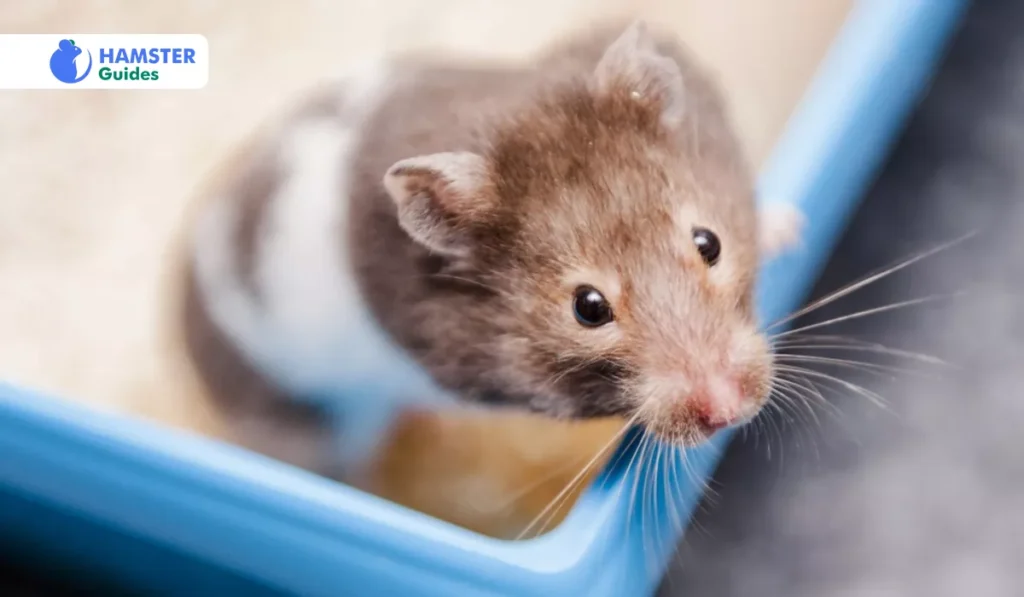
Following are some important factors to keep in mind for hamster sleep:
Nutrition and Environment Adjustments
It’s important to provide hamsters with a balanced diet so they have the energy to remain active. Likewise, you may improve hamsters’ sleep quality by designing their habitat to resemble their natural habitat, which includes hiding or burrowing areas.
The Final Words
Naturally, hamsters are nocturnal animals. Their sleeping patterns, however, might differ. They may sleep through the night or become active around dawn and dusk. To keep their hamsters healthy and maintain a strong relationship with them, owners must understand their habits and adjust accordingly. provide a comfortable sleeping area and adequate care to your hamsters and watch them for any health or sleep issues. Owners may ensure the happiness and health of their pets.









Leave a Reply